“I’m American, honey. Our names don’t mean shit.”—Butch Coolidge, Pulp Fiction
In his essay “Postmodernism and Consumer Society,” Marxist critic Frederic Jameson argues that the concept of postmodernism is primarily a product of the social and economic order of late capitalism. He points to two features that characterize the postmodernist experience—pastiche and cultural schizophrenia. Pastiche is “blank parody,” or mimicry without a satirical impulse, which stems from the death of Modernist individualism (“the conception of a unique self and private identity…which can be expected to generate its own unique vision of the world.”) Cultural schizophrenia signifies a historical amnesia produced by the temporal breakdown of signifiers; in other words: if meaning is derived from the interrelationships of signs, say the individual words that make up this sentence, and if those signs are only consumed in isolation and not as a unit, then the signs become devoid of meaning and history, rendering them images trapped in a perpetual present.
Though Jameson argues for postmodernism as a “periodizing concept” and not simply a stylistic descriptor, Tarantino’s Pulp Fiction assumes both of Jameson’s postmodern characteristics in its visual aesthetic and its worldview. It’s a pastiche of various cinematic modes—film noir, B-movies, samurai films, Blaxploitation—coupled with a disregard for coherent historicity, i.e. “the past” becomes The Past with no direct historical referent—the wall-to-wall ’50s iconography in the Jack Rabbit Slims diner, the ’60s pop music that scores its storms and their preceding calms, the ’70s “cool” exhibited by almost all the characters. It’s not necessary to read Pulp Fiction as a postmodern text. But a text that collects and samples various “surfaces” of previous texts to create a new one nevertheless lends itself to postmodern interpretations.
This “surface-ness” is one of the many, many reasons for why Pulp Fiction has endured. Pulp Fiction has been and will be consumed as simply a cool film, one that brims with the confidence of a Sergio Leone epic but accessible to those with no concept of a “Leone epic.” Banal conversations about burgers and foot massages become larger than life through Tarantino’s wide-angle compositions; close-ups of a key entering a lock or a Pop-Tart bursting from a toaster create suspense all on their own; the lustrous, colorful visual palette constantly invites even when it shocks. And yet, it’s a film whose world has no relation to the Real, but rather takes its cues from the fictional filmic worlds of Yesteryear. Its characters appear preternaturally aware that they’re archetypes. It’s a film that not only looks out at the shadows that dance across the walls of Plato’s Cave, but also carefully studies and mimics their moves as well. All of this is not to say that Pulp Fiction is a fundamentally empty film because it doesn’t strive for Realism. But once you clear away all the irony and the self-consciously “cool” dialogue, you’re left with a melancholic subtext that pervades the entire film: a group of people who define themselves by other people’s surfaces negotiating the emptiness of their existences. They’re all Jamesonian agents “[speaking] through the masks and with the voices of the styles in the imaginary museum.” It’s a film about emptiness that assumes the perspectives of the empty.
This subtext pokes its head out from beneath the surface intermittently. Take the scene where Vincent and Mia enter Jack Rabbit Slims. Tarantino follows Vincent as he slowly surveys the cornucopia of iconography in one long take. To the tune of Ricky Nelson’s “Waitin’ in School,” sung by a Ricky Nelson impersonator, we see what Vincent sees: waiters and waitresses dressed as ’50s icons—Marilyn Monroe, James Dean, Donna Reed—the walls covered with posters of era-specific B-movies—Attack of the 50-ft Woman, High School Confidential, Rock All Night—and finally, the perfect touch that would make Jameson smile with recognition and wince at the same time, a wall of televisions that resemble windows playing old street scenes on a loop, literally forcing the purveyors to look “in” rather than “out.” “I think it’s like a wax museum with a pulse,” Vincent bewilderedly remarks with just the perfect hint of sadness. It signals a reluctant acceptance that neutral mimicry divorced from history is the only mode of living.
Or take Butch’s gold watch that he so dearly treasures and risks his life to retrieve. It’s a memento passed down through generations in his family, one that his father hid in his rectum as a prisoner in a POW camp during the Vietnam War. But what separates this watch from other coveted objects in Pulp Fiction, such as Marcellus’ briefcase? It has a history. It’s the only thing that actually has a lineage and dates back into a defined past. Butch is The Boxer, complete with all the filmic connotations of that archetype; he’s a noir fixture removed from the historical urgency of the genre’s Golden Era. In the context of Pulp Fiction, Butch exists in the perpetual present; The Boxer is a fixture that doesn’t date. The watch, on the other hand, is something to be preserved precisely because it has a past. It’s something worth dying for because men have died for it before him. Watch Butch furiously destroy his and Fabienne’s hotel room: he’s literally crying out for a reminder of history.
But it’s Pulp Fiction’s final scene when this underlying tension finally comes to a head, producing the most poignant, startlingly naked moment in Tarantino’s filmography. Jules and Vincent are sitting at the diner that Pumpkin and Honey Bunny are about to hold up. The two start robbing the customers, but when Pumpkin finally gets around to Jules, Jules refuses to give up Marcellus’ briefcase. On the heels of his recent epiphany that he must retire from crime and walk the Earth, Jules forgoes killing Pumpkin and instead provides a speech analyzing the Biblical passage that he recites before executing people. He ponders his place in the passage, whether he’s the righteous man or the shepherd, but eventually settles on the truth: he’s the tyranny of evil men and the people in his clutches are the weak in desperate need of a shepherd. “But I’m trying, Ringo,” Jules says with surprising sincerity in a tight over-the-shoulder close-up. “I’m trying real hard to be the shepherd.”
Tarantino accomplishes a few interesting things with that final scene: he eschews a typical climactic shoot-out in favor of a meditative textual analysis; he has Jules adopt a postmodern mode by reflecting on the various meanings of the text he frequently employs; and he riffs on a Bible passage that doesn’t exactly exist—it’s really from The Bodyguard, a Sonny Chiba film, that begins with the passage falsely attributed as Ezekiel 25:17—yet another reference without a clear historical or textual referent. But Tarantino does something even more spectacular than simply doubling-down on his postmodern proclivities. He actually cries out from underneath the wealth of film styles and history he has immersed himself in saying, “I have a voice in this. I have a stake in this. I’m trying to be someone of substance.” He’s unofficially rebuking Jameson’s claim that imitating dead styles is the only recourse in a world where stylistic innovation is no longer possible. In that final scene, Tarantino is saying that there is still a wizard behind the curtain, that there is still a puppet master pulling the strings, and that a new voice can emerge from the rubble of the past.
Pulp Fiction’s critical and commercial success established Tarantino as a major director of his generation and led him to a 20-year career that’s still going strong. The film’s legacy is understandably wrapped up in the history of independent cinema, as its distribution strategy—a wide release instead of a slow rollout in art house theatres—proved to Hollywood that indie films could bring in Blockbuster profits, but its true legacy is Tarantino’s uncompromising belief that a fresh perspective can be cobbled together from the entire history of perspectives. At the moment Jules claims he’s trying to be the shepherd, Tarantino figuratively emerges from the screen to say he’s not a collection of stylistic gimmicks, but rather just another director with a voice. In one sense, Tarantino is Jameson’s worst nightmare: he’s an artist who eagerly dons the masks and voices of earlier styles, possibly because it’s necessary, but also possibly because he wants to. See, what Pulp Fiction illustrates is that Tarantino understands something Jameson doesn’t: a common mask can’t hide a fresh set of eyes.

















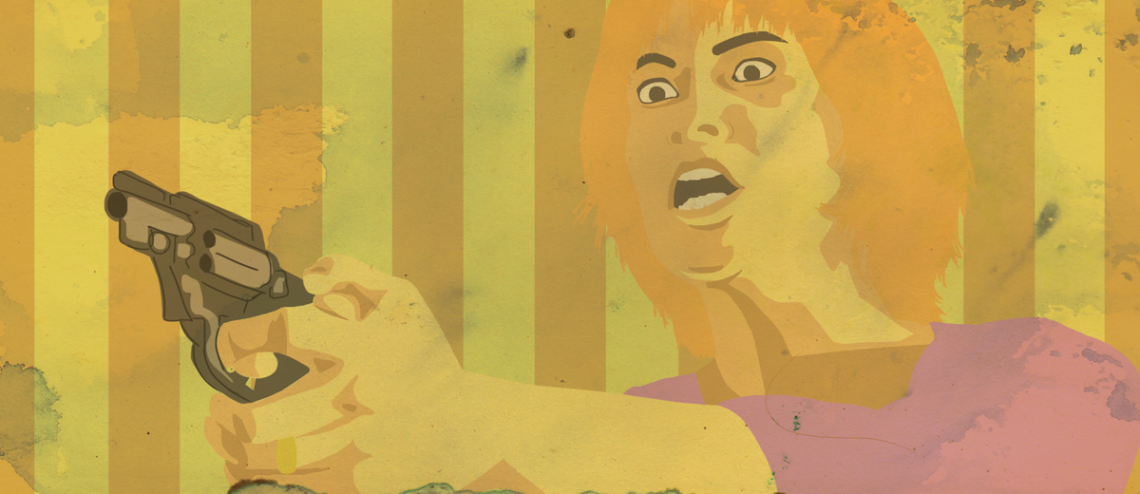
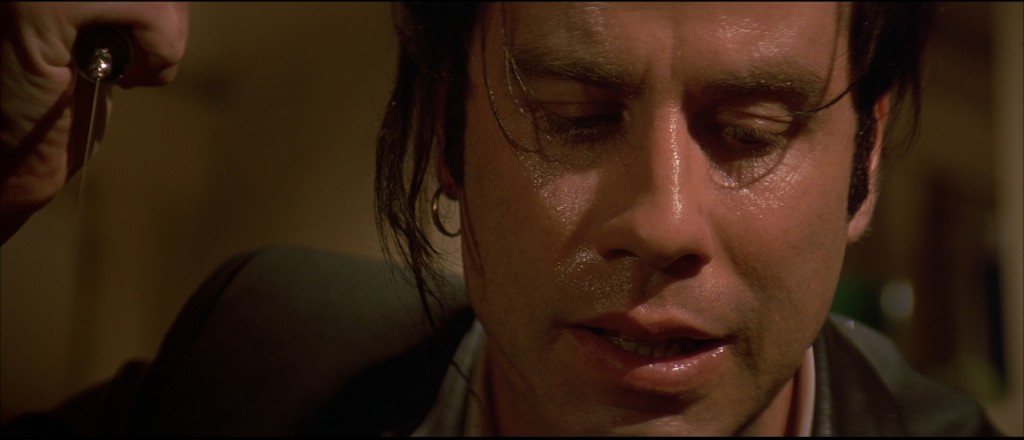
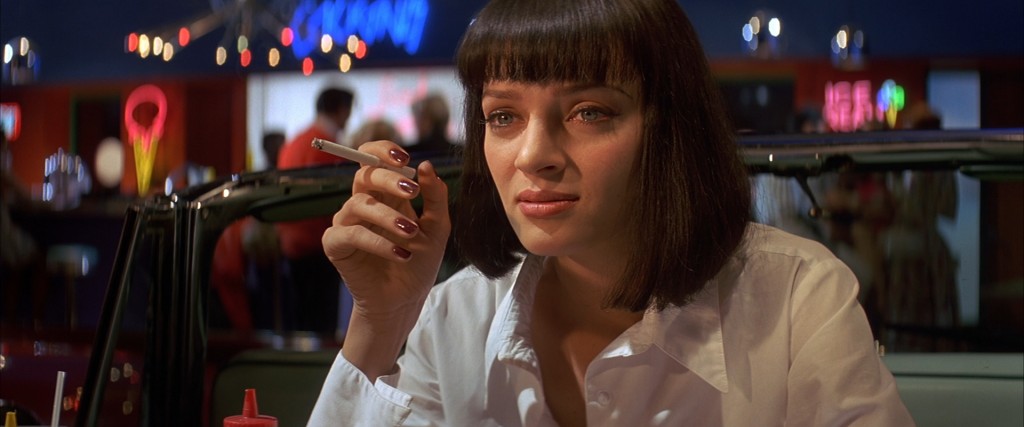
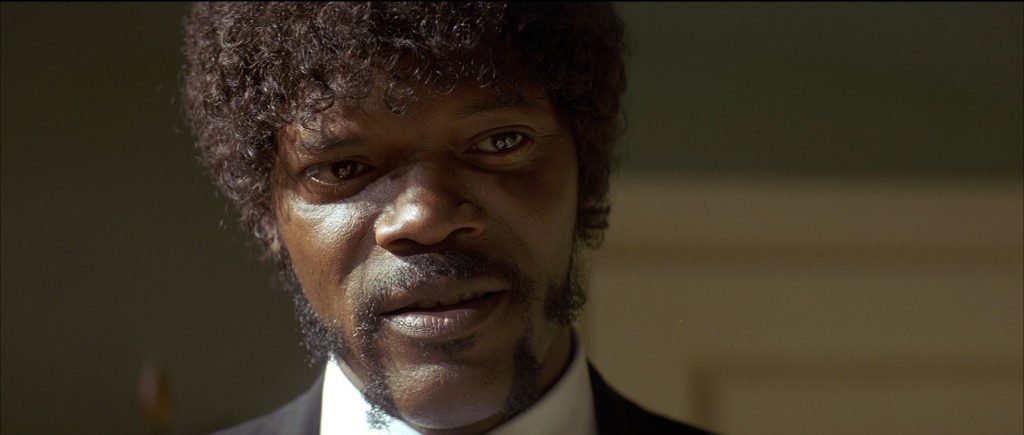
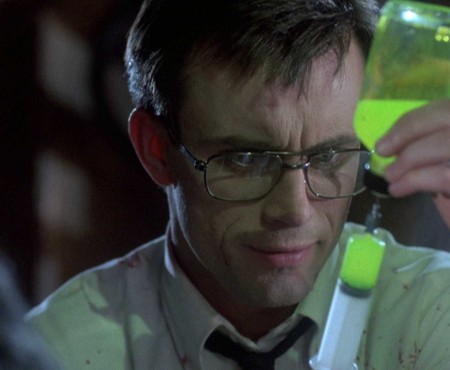
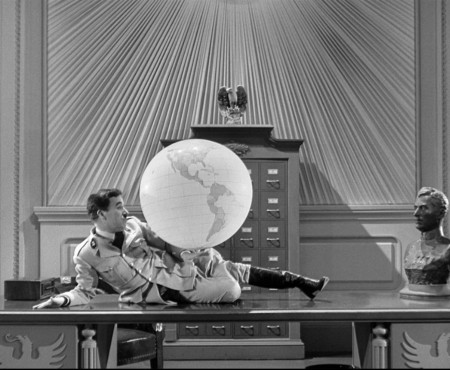
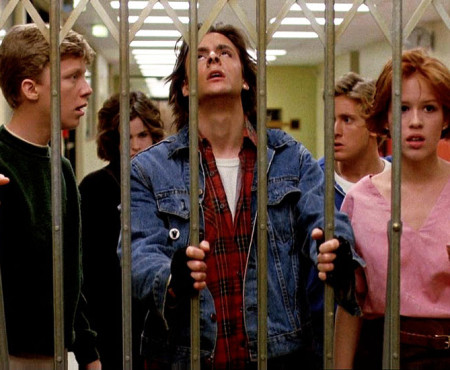
One thought on “The Eyes Behind the Mask: “Pulp Fiction” and Postmodernity 20 Years Later”
Pingback: Projecting: TV Slowdown, Need for Editing Awards, New Bev Heartbreak, Postmodern Pulp Fiction - Next Projection